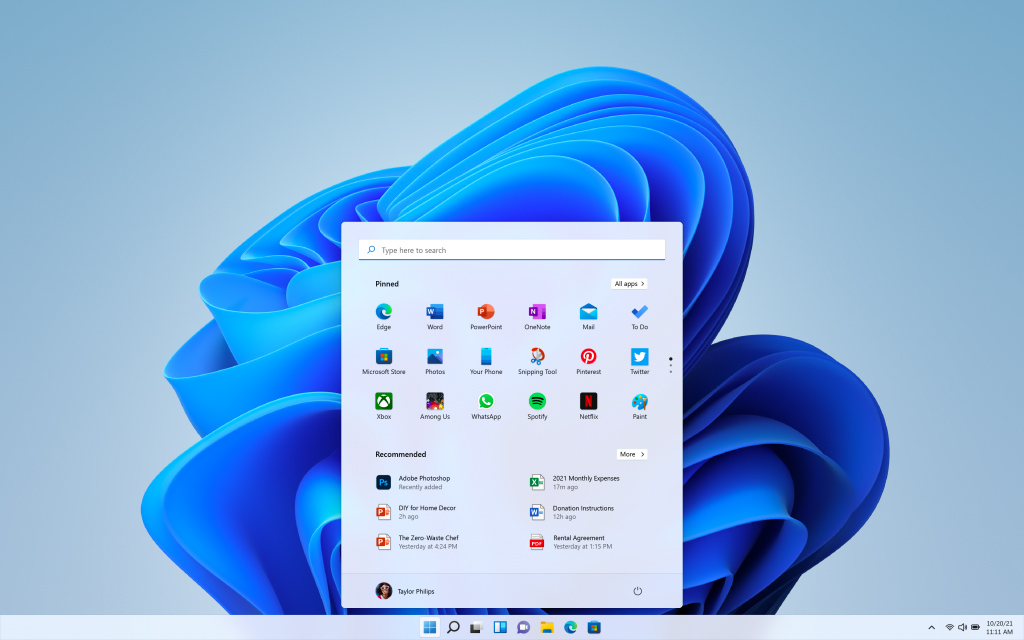Is Windows 11 Better? A Comparative Guide

Discover the ultimate showdown: Windows 11 vs. its predecessors. Find out which features make Windows 11 an unbeatable upgrade!
Table of Contents
Introduction: Exploring Windows 11 and Windows 10
Are you curious about the world of operating systems? Today, we'll dive into the comparison between Windows 11 and Windows 10 to see which one might be better for you. Let's start by exploring the features and differences between these two versions of Windows.
First things first, do you currently have Windows 10 on your computer? That's what we'll find out as we begin our journey into the realm of Windows operating systems. Let's get started!
What's New in Windows 11?
In this section, we'll take a look at the exciting fresh features and updates that Windows 11 brings compared to its predecessor, Windows 10. Let's dive into what's different and improved in the newest version of Microsoft's operating system.
Cool New Design
One of the first things you'll notice when using Windows 11 is its sleek and modern design. The user interface has been revamped to give it a more polished look, with rounded corners and a centered Start menu. This design update makes Windows 11 feel more sophisticated and visually appealing compared to Windows 10.
Updated Apps and Features
Windows 11 also introduces new apps and features that enhance the overall user experience. From the redesigned Microsoft Store to the improved multitasking capabilities with Snap Layouts and Snap Groups, there are plenty of new additions to explore. These updates aim to make navigating and using the operating system more intuitive and efficient, setting Windows 11 apart from its predecessor.
Windows 10 vs. Windows 11: Performance
In this section, we will compare the performance of Windows 10 and Windows 11 to help you understand which operating system might suit your needs better in terms of speed and stability.

Image courtesy of via Google Images
Speed and Efficiency
When it comes to speed and efficiency, Windows 11 is designed to be more optimized than Windows 10. This means that tasks like booting up your computer, opening applications, and moving between different programs may be faster on Windows 11. The new operating system is built to take advantage of modern hardware, allowing it to run more smoothly and offer improved performance overall.
Stability and Reliability
Windows 11 also focuses on stability and reliability, aiming to provide users with a more consistent and seamless experience. This means that the operating system is less likely to crash or encounter errors compared to Windows 10. With enhanced security features and regular updates, Windows 11 offers a robust platform for your daily computing needs.
Cost and Availability
Have you ever wondered why some people can get Windows for free? When Microsoft offers Windows for free, it usually means that they are giving it away without charging any money. But keep in mind, not everyone may qualify for this free offer. It could be for specific groups of people or as a limited-time promotion. So, if you see Windows being advertised as free, make sure to check if you meet the requirements to get it without paying any money.
The Cost of Windows 10
Now, let's talk about Windows 10. Can you install Windows 10 for free? Unfortunately, installing Windows 10 for free is not always an option. Microsoft does offer free updates for existing Windows 7 and Windows 8 users to upgrade to Windows 10, but if you need to purchase a new copy of Windows 10, there will be a cost involved. The price of Windows 10 can vary depending on the edition and features you choose. It's always a good idea to check with Microsoft or authorized retailers to find out the current cost of Windows 10.
Upgrading: Should You Switch to Windows 11?
In this section, we'll discuss whether it's a good idea for you to upgrade from Windows 10 to Windows 11. Let's explore how to determine which operating system might suit you better.

Image courtesy of via Google Images
Checking Your Current Windows Version
If you're unsure whether you already have Windows 10 on your computer, don't worry. Finding out is quite simple. To check your current Windows version, you can click on the Start Menu, then Settings, and finally, System. Under System, you'll see "About" where you can find the information about your operating system version. If it says Windows 10, then you're all set!
| Aspect | Windows 10 | Windows 11 |
|---|---|---|
| User Interface | Start menu on left, taskbar at bottom | New centered Start menu, taskbar at bottom |
| Performance | Fast boot times, efficient resource management | Improved performance with Direct Storage and faster CPU optimization |
| Compatibility | Runs most software and hardware without issues | Enhanced compatibility with Android apps and improved gaming support |
| Productivity | Good multi-tasking features and virtual desktops | Enhanced multi-tasking with Snap Layouts and Snap Groups |
| Security | Windows Defender antivirus and regular updates | Enhanced security with built-in hardware security and improved Windows Hello |
Making the Upgrade Decision
Now that you know what version of Windows you have, the next step is deciding whether to switch to Windows 11. Consider what new features and improvements Windows 11 offers that are important to you. Do you value a sleek and modern design? Does faster performance matter to you? Are you excited about trying out new apps and features?
Think about how you use your computer and whether Windows 11 would enhance your experience. Keep in mind that while Windows 11 brings exciting updates, Windows 10 is still a reliable and familiar option. If you're content with Windows 10 and it meets all your needs, there may be no rush to upgrade. But if you're eager to explore what Windows 11 has to offer, it could be worth making the switch.
Conclusion: Summing Up the Windows Experience
In this article, we have delved into the world of Windows operating systems and compared the latest version, Windows 11, with its predecessor, Windows 10. Let's recap the key points discussed and offer some final thoughts on the Windows experience.
Exploring Windows Features
Windows 11 brings a fresh new design and updated apps and features that enhance the user experience. The visual improvements and modern look of Windows 11 make it a compelling choice for those looking for a sleek and stylish operating system.
Performance Comparison
When it comes to speed and efficiency, Windows 11 shines with its optimized performance that can make your computer run more smoothly. In terms of stability and reliability, both Windows 10 and 11 offer solid performance, but Windows 11 takes the lead with its enhanced system stability.
Cost and Accessibility
Microsoft has made Windows 11 available for free to eligible users, offering a seamless upgrade experience without any additional cost. This move toward free upgrades ensures that more users can enjoy the latest features and improvements without breaking the bank.
Upgrade Decision
If you are currently using Windows 10, it's worth checking if your system meets the requirements for Windows 11 and considering the benefits of making the switch. With its enhanced features and improved performance, Windows 11 presents a compelling case for an upgrade.
Overall, the Windows experience continues to evolve with each new iteration, offering users a blend of innovation, functionality, and reliability. Whether you choose to stick with Windows 10 or upgrade to Windows 11, Microsoft continues to provide a solid operating system tailored to meet your needs.
FAQs
Is Windows 11 really better than Windows 10?
Yes, Windows 11 comes with several new and updated features that enhance the user experience compared to Windows 10. From a sleek new design to improved apps and features, Windows 11 offers a more modern and efficient operating system.
Can my computer run Windows 11?
To run Windows 11, your computer needs to meet certain hardware requirements. These include a compatible processor, a certain amount of RAM, and sufficient storage space. You can check Microsoft's official website for a detailed list of requirements to see if your computer is capable of running Windows 11.


